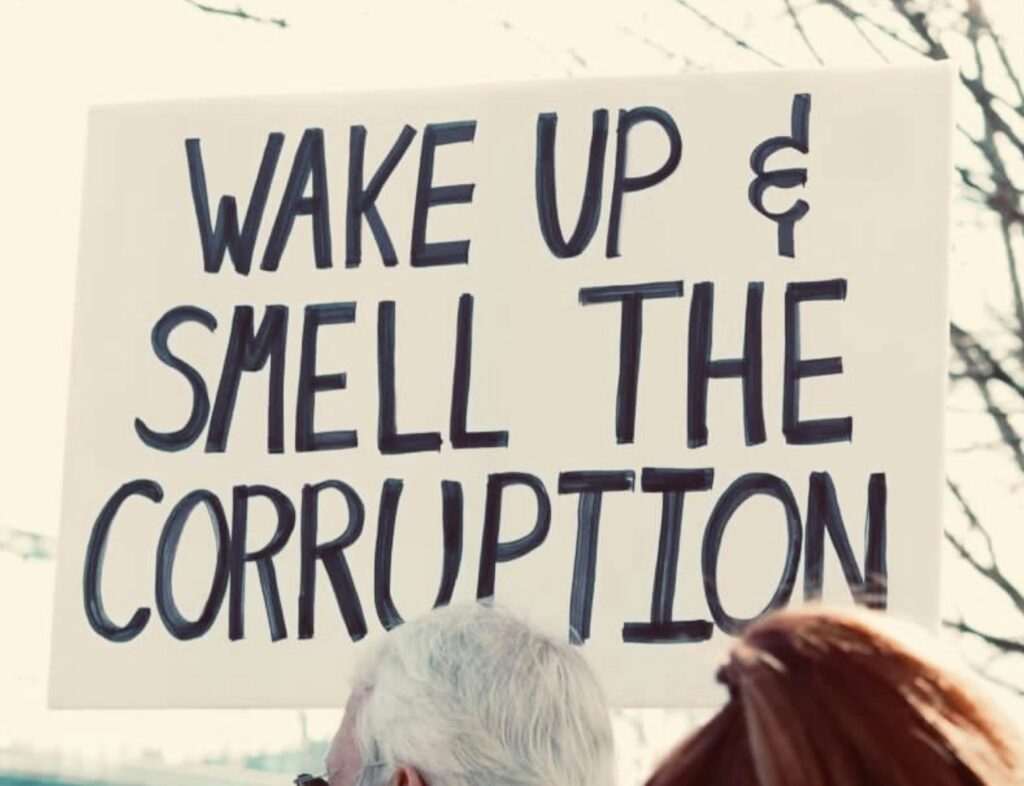Fools say in their hearts, “There is no God.”
They are corrupt; they do abominable deeds;
there is no one who does good.The Lord looks down from heaven on humankind
to see if there are any who are wise,
who seek after God.They have all gone astray; they are all alike perverse;
there is no one who does good,
no, not one.
(Psalm 14:1-3, New Revised Standard Version, Updated Edition)
At first glance, you might think that Psalm 14 condemns atheism. Every commentary I read in preparation for this message, however, assured me the fools don’t actually deny the existence of God—more like “God doesn’t care about us” or “God pays no attention to us,” maybe even “God can’t touch us.” So go ahead and do whatever you want, who will stop you? Robert Alter’s translation leans harder into this than any other version I’ve read.
“The scoundrel has said in his heart, ‘There is no God.’”
We’ve seen our fair share of such scoundrels in recent years, haven’t we? Even when our leaders pay lip service to a Christian God, they continually appeal to our ambition and greed as a means of getting us to give them permission to feed their own lusts for wealth, prestige, and power. Caught in transgressions too egregious to ignore, they insist “everybody does it” and they simply want their business or their nation to remain competitive.
The distinction between “fools” and “scoundrels” matters, I think. The fools who refuse to consider themselves bound by God’s covenant hurt themselves, and of course they hurt the victims of their abominable deeds. The scoundrels do something much worse, though. “They corrupt,” as Alter puts it—they don’t just exist in a state of corruption, they cause the world around them to become more corrupt as well. They convince others to follow them into corruption, whether by direct persuasion or by the example of their momentary success. Society drifts further and further from the covenant, and people become increasingly “all alike perverse.”
The Quaker minister James Nayler saw a similar state of affairs in seventeenth-century England, “Alas,” he wrote in The Lamb’s War, which you might say serves as his great manifesto:
“…men and women come into the world and depart out of it again as though they were made for no other end but vanity and selfishness; scarce one in ten thousand knows any call from God to serve Him, or has an ear to hear that voice. And if any do hear and obey, the world concludes them deceived, and is ready to devour them because they testify against the evils which destroy men’s souls, and make void man’s service to his creator and devour the creation.”

So what can we do to counteract such corruption?
I don’t mean to suggest the United States should go down the path of the Christian nationalists and have our government literally sign on to a covenant with the Lord. For one thing, that would reduce a whole lot of non-Christians to second-class citizenship at best. Christian nationalism strikes me as little more than White supremacy in fancy dress. And I’ve got little use for that kind of society.
(If you were to suggest that contemporary American society already resembles White supremacy in fancy dress, well, I wouldn’t protest that vociferously. But surely we can all recognize that things can get much worse.)
Quakers have a long history of speaking from a position of prophetic imagination, of directly confronting the depravities of society and warning where they will lead. “Whatever the god of this world has begotten in men’s hearts to practice or contend for—yes, whatever God did not place there,” Nayler argued, “all this the Lamb and His followers must war against, and they must be at enmity with it both in themselves and wherever they see it.”
Don’t sleep on that first object of enmity.
Whatever God did not place in your heart, you must reject when you find it there, just as fiercely as you would challenge it in someone else. When the Lord looks down from heaven to see if there are any who seek God, you should come up on God’s radar.
“When you feel in yourselves the moving of that Seed which is holy, bearing witness against all that is contrary to holiness,” Nayler advised in another pamphlet, “then, I say, believe in that, for that is Christ in you.” If you don’t believe in Christ, if you need to think of that Seed as something else, you can do that. Whatever you call it, though, hang on to it tightly, and don’t let the scoundrels of this world lead you away from it.


Comments on Friendsjournal.org may be used in the Forum of the print magazine and may be edited for length and clarity.